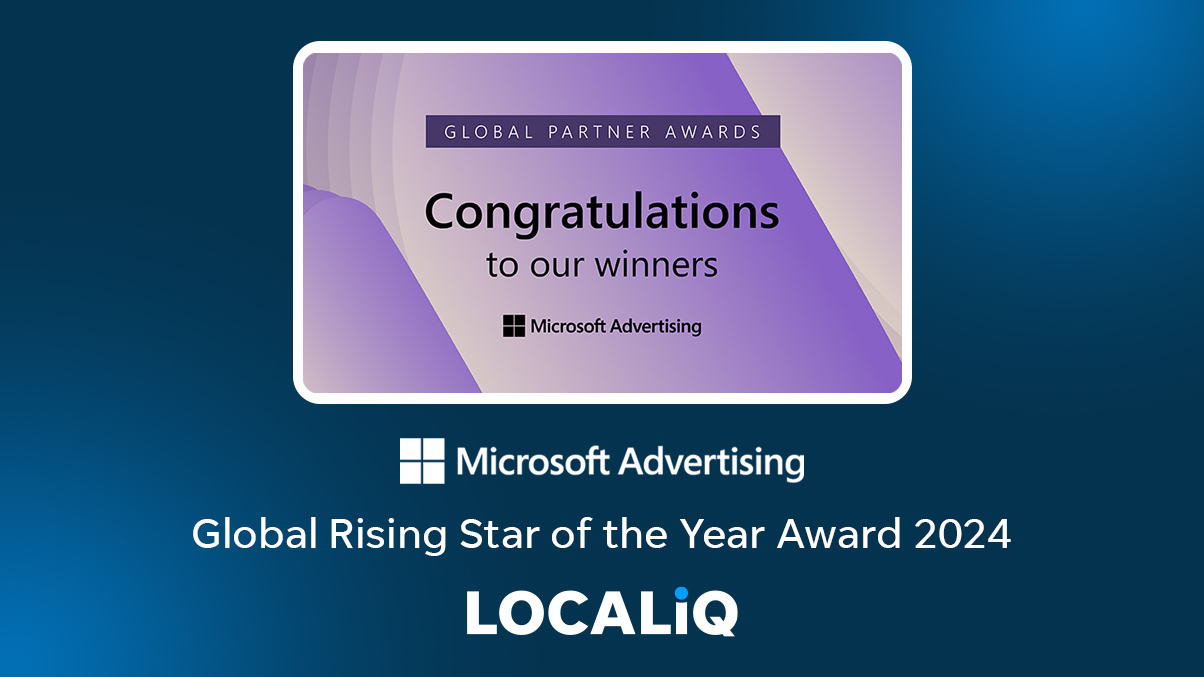Successful social media marketing is not about being on every channel. It is all about attracting the best customers and sharing useful, relevant, and valuable content with them. But deciding which social media platforms to use can be challenging, especially when new platforms continue to emerge.
Although your social media strategy depends on your industry and audience, Facebook is a great starting point. Facebook is not new, and neither is the idea that every business needs a Facebook presence.
As the most popular social platform in the world, with more than 2.7 billion active users, Facebook will help you interact with your audience and provide them with useful content that can help them visit your website or make a buying decision.
Most small businesses cannot ignore Facebook, with practically every target market and ideal client using the platform, there has never been a better time to take your Facebook marketing to a new level. Considering how many people are already on social media, why would you not reach out to them there?
Here are five reasons why you need Facebook for your small business:
1. Build brand awareness and trust
Whether you own a restaurant, a digital marketing firm, or a dentist, you need to promote your business to attract customers and expand your base.
When someone discovers your business while browsing Facebook, they will have the opportunity to click through to your website and learn more about your business, how you can help others and why they should consider working with you.
Even if someone visits your Facebook business page and is not ready to make a buying decision, they may find value in the thoughtful content you share. To build brand awareness effectively, you may want to:
- Partner with businesses that give off strong trust signals: Big-name brands have worked extremely hard to earn the level of loyalty and trust that has allowed them to succeed. If your business has the opportunity to partner with a well-known and trustworthy brand, take advantage of it! Customers will begin to identify your brand with a well-known one, and they will be inclined to perceive your brand favourably as a result.
- Make the most of influencer marketing: Whether you like it or not, influencer marketing is a must-have, especially if your business is targeting younger customers. Naturally, if you want to increase brand awareness, you will work with influencers who have very large followings.
- Harness the power of content marketing: Content marketing is not just about keyword ranking and backlinks – it is also an amazing way to tell a story. If you can tell your story well, it will not only resonate with your target audience but will also result in increased brand awareness.
- Utilise SEO for brand awareness: It is as simple as this, a high search engine ranking will do wonders for your brand awareness. In addition to being easier to find, your brand will be more credible in your audience’s eyes as you rank higher.
All of this will encourage people to understand your business and believe that you are a knowledgeable and helpful resource.
2. Target your best customers with Facebook advertisement
Facebook news feeds show users the content that is most relevant to them. This means only 0.5% of your current followers will see what content you post. Creating a social media advertising strategy, however, can help you reach potential customers.
Facebook ads can target your ideal audience, are measurable, and have a high return on investment (ROI) as a low-cost marketing option for small businesses. So, how do you find and target your ideal audience? Facebook allows users to provide information such as their age, gender, location, interests, and more when creating an account.
Facebook will then analyse the content they post, share, and interact with to better identify their interests and show them content they actually want to read. You can then use this information to create Facebook ads that are shown only to your target audience.
3. Boost customer engagement and improve SEO
As we mentioned above, just posting to your business page generally does not generate new business, but it can inspire additional business for existing customers. This is accomplished through helpful content, which can translate to a better search engine optimisation (SEO) ranking and higher engagement between you and your Facebook followers.
Google and other search engines look at the type of content you post on your Facebook business page, and how people interact with your content by clicking, liking, or sharing your content. By sharing your website content, you can drive more traffic to your web pages as search engines see it as a sign that your website has useful and relevant content that people want to read and interact with.
In turn, this can lead to better SEO rankings or being higher up on Google’s results page. In addition to improving your SEO, consistent content that encourages social interaction will also increase your engagement on your Facebook Business Page. Regular posts and videos will give you the opportunity to reach your customers. Every day.
4. Connect with your followers
Setting up your Facebook for your small business will give you the opportunity to personally communicate with customers and share useful information with them. In addition to providing them with content, they can also share more information about themselves with you.
Inviting their interactions, comments, and feedback will let you know who they are and what they are looking for in a business, product, or service. You will also give your company a more human face, making it feel more like a community if you engage with your followers.
Today, this is what many people look for in a business, they do not just want to hear about the helpful products and services, they also want to see what core values your business operates on.
5. Analyse helpful metrics
Once you start using Facebook to market your business, you will need to analyse the effectiveness of your posts and Facebook ad performance. This allows you to see what content is most relevant, interesting, and useful to your customers.
If they are not associated with a specific type of content, time of day for posting, or any other content, analytics can help you tweak your social media strategy to increase audience engagement. To access your analytics, log in to Facebook and click audience insights in the top menu.
This will take you to an overview, which provides a summary of everything that has happened on your Facebook business page in the last day, week, or month. You can then analyse various metrics, including:
- What time of day does your target audience have the highest engagement?
- Types of content you have shared (blog posts, videos, external resources, etc).
- How people interact with your content (likes, comments, shares, etc).
- How many users clicked through to your website from social media?
- What content is the most popular with your audience and least popular?
Now that you know why you need Facebook for your small business, you’re ready to start engaging with customers online!
How can I use Facebook to promote my business?
It might be difficult to know where to begin when it comes to using Facebook to promote your small business. With Facebook offering multiple tools for promotion, you should really consider utilising all of them to maximise your reach.
To make Facebook promotion work for you, follow these simple steps:
1. Create a Business page
The first step is to set up a Facebook business page. This is a straightforward procedure. Simply log in to Facebook, select Pages from the left-hand menu, and then Create New Page. To get started, you will need to provide a profile picture, a cover photo, and some basic business information.
This will contain the type of business you run, whether it is a B2B, a local business, or an e-commerce website. It is a good idea to start optimising your page, as soon as you sign up.
2. Optimise your profile
You will want to optimise your profile now that it is up and running. This includes writing your About section, providing business information such as your website and hours of operation, and inserting a call-to-action button like Book Now, Shop Now, or Sign Up.
Additionally, you will want to draft multiple blogs on your website that you can share on your Facebook page. These blogs will help keep your followers interested. Consider the type of social media posts that they might enjoy.
What kind of interaction do they have with your competitors? What posts perform well for your competition? This it’s the type of content you should be aiming for. It is time to engage with your community now that you have developed and optimised your business page.
3. Be active in Facebook groups
Participating in Facebook Groups is a great method to promote your business on Facebook. You can engage with public groups or join a private Facebook group. To get started, think about the type of groups that your target audience might be a part of. After you have completed your brainstorming, you can join the same online communities that your audience is active in.
4. Create your own Facebook group
While it is critical to engage with your audience wherever they are, it is also critical to draw your audience to your own page. This is something you can do with your own Facebook group. It is a place where you can engage with one another and have useful discussions. Businesses that create a group around their brand or industry can create a community around it, increasing the value of their brand and products to potential customers.
5. Promote events
Another strategy to advise your business on Facebook is to post information about upcoming events. If you are a local business, this is especially important. Attracting people to an event can be a challenge, and you’ll need to use all the tools at your disposal to promote it. As a result, you should advertise your event on Facebook and create a Facebook ad campaign.
6. Interact with your followers
Although it may appear to be like social media 101, it is important to communicate with your followers. The greatest strategy to increase social media engagement is to make sure your posts are seen by your followers. To do so, you will need to create interaction. Make sure you are answering inquiries, responding to comments, and participating in your online community.
7. Use the live streaming
Facebook Live is a fantastic way to market your business while also providing relevant content to your audience. You can use this tool to highlight your company’s culture, conduct a panel debate on industry topics, or simply promote your industry knowledge.
Additionally, you may hold virtual events on Facebook Live to communicate with your audience who can not attend in person. Going live is a terrific approach to promoting your business because it will notify your followers and prompt them to interact with your page.
8. Run Facebook ads
Facebook ads are one of the most effective ways to promote your business on social media platforms. With its comprehensive targeting tools, the social media giant has established one of the most popular ways to reach your target audience. You can review this lesson from Facebook directly to get started with ads. To help you succeed, review the different types of Facebook advertising and various bidding tactics.
9. Talk about your company culture
Your content should promote your overall brand personality when you publish on social media. Talking about your company’s culture is a wonderful method to do this. Showcase your employees and the jobs they do on a daily basis. You can also use Facebook to recruit employees by hosting panels on what it is like to work at your company or posting jobs directly on your business page.
10. Manage contests and giveaways
One of the key goals of Facebook promotion is to encourage engagement. You can do this by hosting contests and giveaways that your audience will want to participate in. This will help to raise brand awareness and motivate your followers to interact with you.
11. Have a customer service representative take feedback and requests from customers
Customers can reach out to you on social media in a variety of ways. If people want to contact you via Facebook, you need to be prepared to answer their questions and address their requests. Consider having a few people from your customer service team respond to messages or comments from customers to accomplish this.
12. Post valuable content
Finally, providing valuable content for your audience is the best approach to promoting your business on Facebook. Content is what draws people to your social media profiles and enables you to build an audience online. You will want to incorporate a variety of content including images, videos, text, stories, and polls.
Facebook is an essential part of your social media marketing. It is critical to build both organic and paid social media strategies to promote your business on Facebook, regardless of the type of business you run. At first glance, all of this may seem overwhelming, especially when you are still learning the ins and outs of Facebook. You may not have time to create, manage, and analyse posts and ads yourself – and that’s okay.
A social media agency can help you plan a Facebook strategy, set advertising budgets, create page images, and analyse engagement. Then you can sit back and do what you do best: lead your business and watch it grow.




